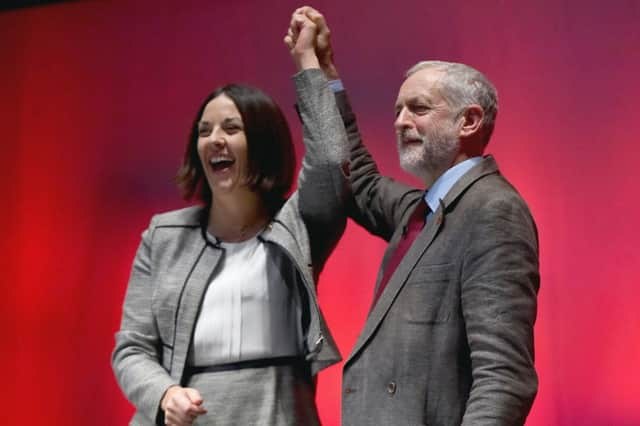Nicola Sturgeon challenged to rule out indyref2


In a message to the First Minister of Scotland, she said Labour would vote against any proposal for a second referendum in this parliament and warned against increasing the divisions in a country already split by the Brexit vote.
Addressing the Labour Party conference in Liverpool, she said Scotland faced enough “risk and uncertainty” following the UK vote to leave the European Union.
Advertisement
Hide AdAdvertisement
Hide AdShe said: “In the rush to find a way through Brexit, Nicola Sturgeon is being forced to face both ways – to please her supporters and try to steer the country through a tough time.
“But she needs to get back to the bread-and-butter issues. Scotland faces enough risk and uncertainty with the Tories’ reckless Brexit gamble. We do not need the risk and uncertainty of another independence referendum.”
In a direct appeal to Ms Sturgeon, she said: “First Minister, our country is already divided enough. Do not divide us again.”
Ms Dugdale’s comments come as a senior SNP MSP and former Scottish Government minister suggested that a second independence referendum should not be rushed through.
Alex Neil said Scotland could achieve “neo-independence” without a referendum. A Labour source said SNP members “clearly want different things”.
Scottish Labour deputy leader Alex Rowley has previously indicated he would not oppose a second referendum but sources made clear the whole party would be bound by Labour’s manifesto commitment.
The Scottish Labour leader accused the Tories of the “worst type of constitutional vandalism” over the general election campaign, the EU referendum and the “English votes for English laws” changes in Westminster.